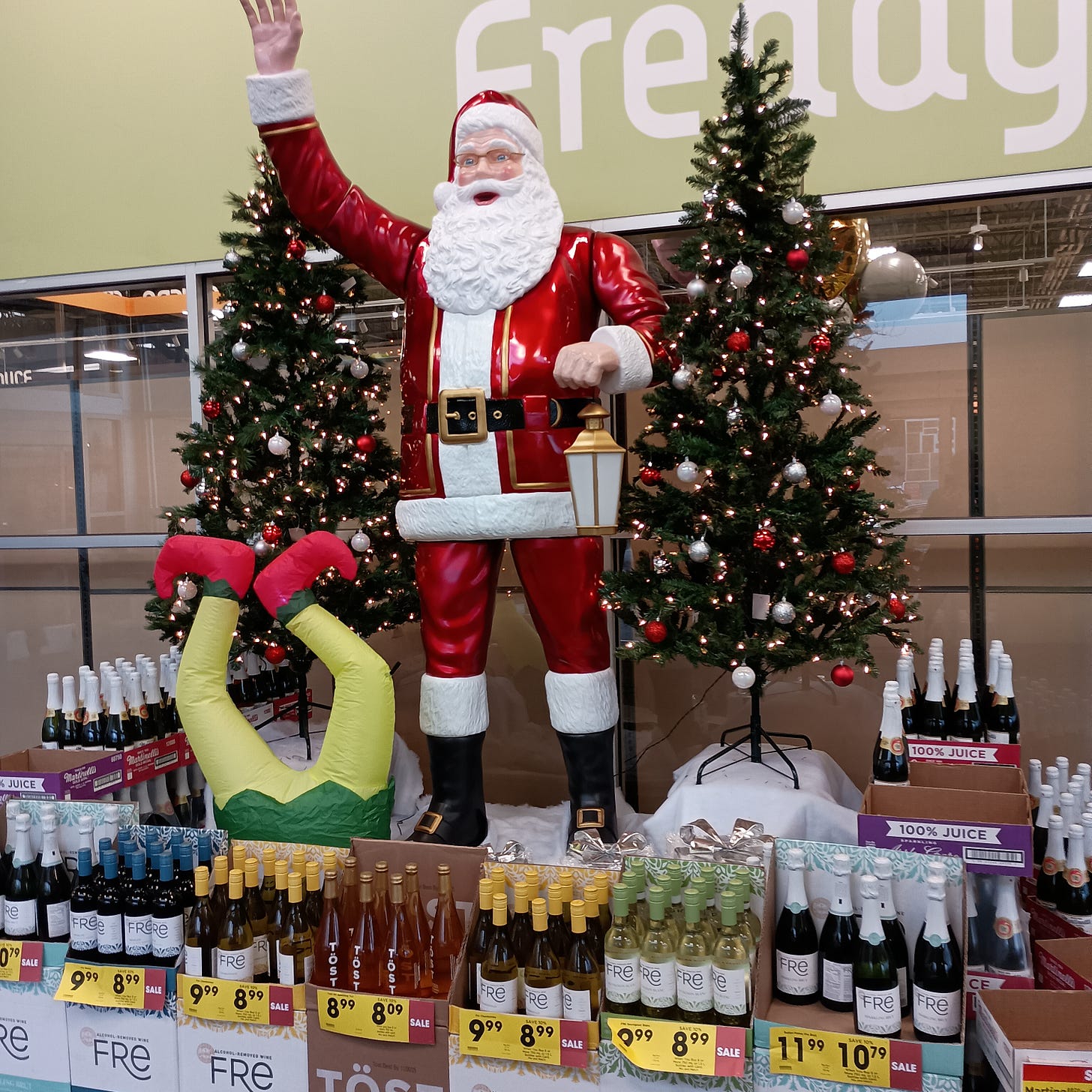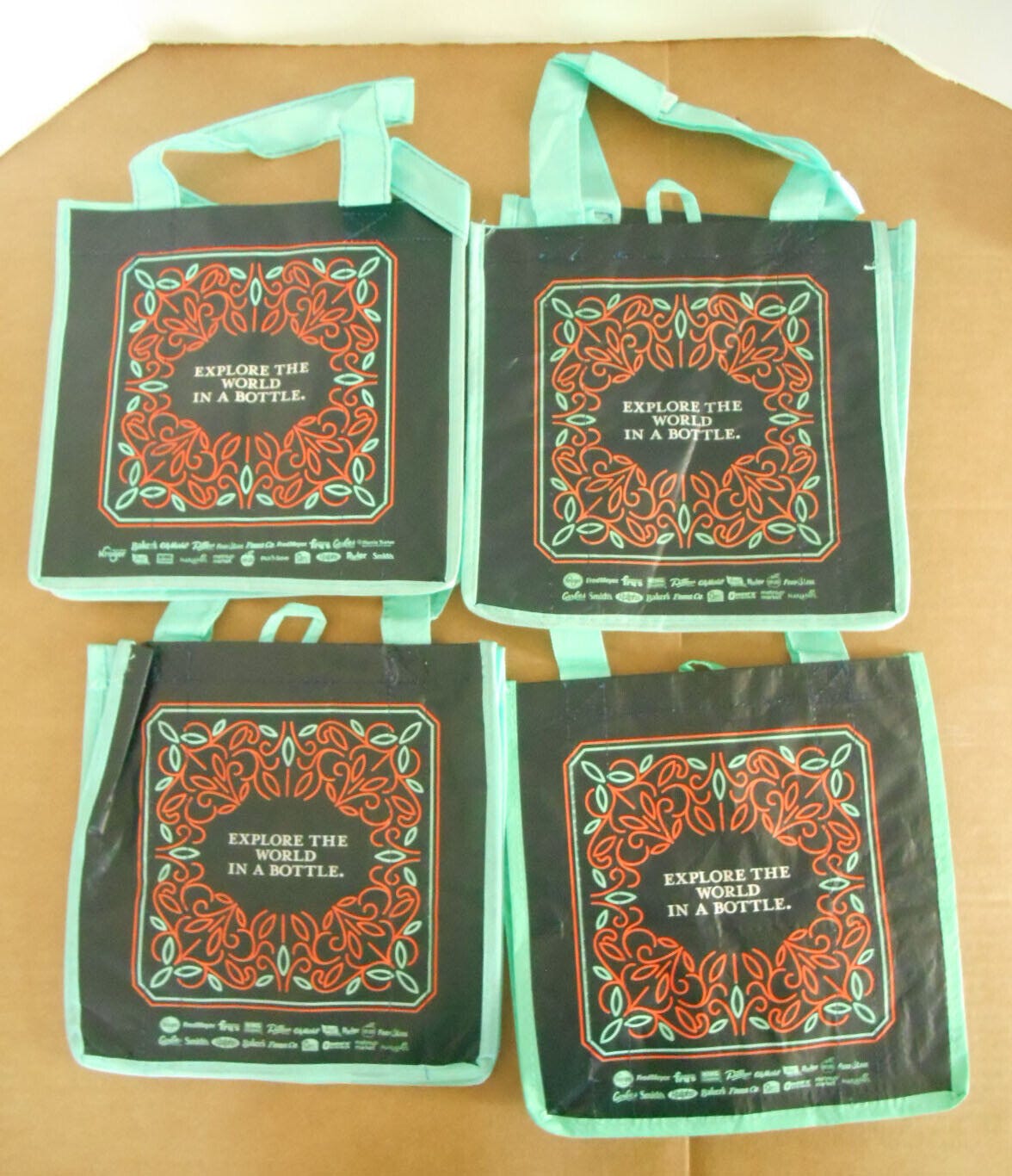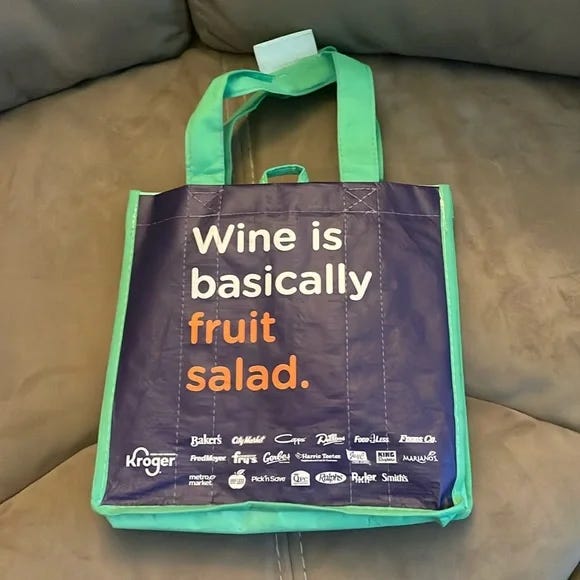You're Too Old to Drink Yourself To Death...in Your Thirties
Too Old for This Sh*t: How to Take Your Life Back from an Ageist Society

Especially during the holidays, which begins this week, when will you give yourself the gift of health?
Two things caused me to write this article. First, I’d done some light shopping just before Thanksgiving, including Costco (I got there half an hour before the opening bell, just saying) and then at my local Kroger.
Both stores had huge pushes for holiday “cheer,” which is a euphemism for getting blind drunk. For some of us that’s not a big change of pace.
Here’s a photo of the big fat happy man himself, pitching all of us to go get merry already:
Especially right now, this is damned dangerous. A lot of folks want to celebrate a recent win, and even more want to drown themselves from the loss. Not the way to do it.
I come from a family shattered by alcoholism. My father and brother, both, the latter took his life at 62. Dad died a broken man, estranged from his daughter. Mom drank too much as well, but interestingly, after my father passed, she largely quit.
Says something about the company we keep and the enabling nature of relationships. Dad insisted for years that I have a drink “for fellowship,” which I refused for obvious reasons (booze sickens me). Without my willingness to drink up with my Dad, we failed to create a connection of any depth. Dad needed drinks to create connections, I need mature adults.
Never the twain shall meet.
Especially since Covid, when alcohol consumption skyrocketed, alcohol use among women went to Mars and beyond. From that article:
…Heavy drinking rates for women particularly increasing 41%.
Home Goods, the finest imaginable display of rank consumerism for the middle market, sets aside entire aisles dedicated to getting drunk for Christmas with all kinds of expensive enabling gifts. It’s a season (along with football, baseball, volleyball, tennis, etc., ANY sport, movie, birthday, funeral, you name it) to drink until you’re anesthetized.
Actually, let me correct myself. The holiday season actually begins just after July 4th, which is a major beer fest in and of itself. Why? Because the following weekend, retailers are jamming the end caps with pumpkins long before the bathing suits are dry for the season. Drink up, it’s always “happy hour” somewhere, as my parents used to say.
I’m sure you can tell by now that I don’t drink. Never have, never will. I’ve had my share of addictions, but they weren’t substances. Okay, sugar, that’s bad enough. But designer duds, adventure gear- I get what habits can do. But alcohol is a particular issue for me because you CAN stop, and you can choose to stop before it ruins your family.
Of course it’s bloody hard. But please, you, your body, those who love you like your kids, everyone has a stake in this.
Above all you can stop before it ruins your body far younger than you think it can.
This is the other thing: too many people honestly believe that if they’re “just a social drinker” then they’re good.
This is the second thing which inspired this post: an article by a 31-year-old “social drinker” who is very close to having no liver at all.
Most people really have zero clue what alcohol really does to the body. Worse, they also are clueless that women cannot hold their liquor, famous Indiana Jones movie scenes notwithstanding. The author, Hazel Martin, a BBC journalist, writes:
If we binge a given amount of alcohol in one go - for example on a night out - it can be much more damaging than if we drink the same amount over a longer period.
The latest research, by a team at University College London and the universities of Oxford and Cambridge, suggests bingeing may be up to four times as damaging for the liver.
When we think of binge drinking, we tend to imagine people drunkenly sprawling out of bars and falling over at bus stops. But actually, a binge can be less alcohol than you might think.
In the UK, a binge is considered as drinking six or more units of alcohol in one sitting for women, and eight or more for men. That is two large glasses of wine for a woman. (author bolded)
Substack is chock-full of folks struggling to get sober, stay sober and write about both. It is full of people like my father and brother who have let this go on way too long, who started too young and who didn’t evolve emotionally because the bottle took over the maturation process.
I see you and feel for you. Above all, as we dive headfirst into the extreme demands of a season underscored by excesses, with people struggling with mental illness, isolation, loneliness and despair, I ask what’s more important:
the booze or your life?
the bottle or your kids, family, friends?
the next drink or any potential future, where you’re not waiting for a liver transplant?
She writes,
Seven in 10 people with end-stage liver disease don’t know anything about it until they are admitted to hospital with symptoms such as jaundice, fluid retention and abnormal bleeding.
That’s in the UK. Here in America,
Number of adults age 18 and older with diagnosed liver disease: 4.5 million
The liquor industry is very happy about the stats, and just as with gambling, well, it’s a choice. Not after you’re badly hooked, it’s not, which feeds their coffers and too many coffins.
Martin writes:
The same aggressive approach persists today within the alcohol industry, believes Prof Carol Emslie, from Glasgow Caledonian University. Only now it is pushing things like prosecco, “gin o’clock” and “wine time” as a way for women to relax and practise self-care after a hard day.
The industry is happy to pitch the normalization of x bottles of wine a day because well, it’s just so hard and we deserve it.
Here on my side of the pond,
I find the above wine bags at my local Kroger’s deeply, personally offensive. It would be cute had I not seen what happens in a family suffering alcohol abuse.
I find all the cutesy wall signs and refrigerator magnets encouraging wine consumption deeply, personally offensive. Just Google “Cute wall signs about wine” and you’ll see my point.
There is nothing innocent about alcohol. Any amount of it.
And all those stories that keep circulating about how you can do it in moderation?
The science doesn’t back it up.
The World Health Organization published the following findings in early 2023:
The risks and harms associated with drinking alcohol have been systematically evaluated over the years and are well-documented. The World Health Organization has now published a statement in The Lancet Public Health: when it comes to alcohol consumption, there is no safe amount that does not affect health.
It is the alcohol that causes harm, not the beverage
Alcohol is a toxic, psychoactive, and dependence-producing substance and has been classified as a Group 1 carcinogen by the International Agency for Research on Cancer decades ago – this is the highest risk group, which also includes asbestos, radiation and tobacco. Alcohol causes at least seven types of cancer, including the most common cancer types, such as bowel cancer and female breast cancer. Ethanol (alcohol) causes cancer through biological mechanisms as the compound breaks down in the body, which means that any beverage containing alcohol, regardless of its price and quality, poses a risk of developing cancer.
The risk of developing cancer increases substantially the more alcohol is consumed. However, latest available data indicate that half of all alcohol-attributable cancers in the WHO European Region are caused by “light” and “moderate” alcohol consumption – less than 1.5 litres of wine or less than 3.5 litres of beer or less than 450 millilitres of spirits per week. This drinking pattern is responsible for the majority of alcohol-attributable breast cancers in women, with the highest burden observed in countries of the European Union (EU). In the EU, cancer is the leading cause of death – with a steadily increasing incidence rate – and the majority of all alcohol-attributable deaths are due to different types of cancers.
I know very few people who don’t drink at all. The bulk of humanity imbibes. The problem is that it is not good for us. I understand the attraction, I understand the addiction, and I understand the role that alcohol plays in so-called polite society.
I also understand and have directly experienced its devastation in both my family and my short-lived marriage, cut short by alcohol abuse which turned an otherwise good man into a bit of a monster. No, a monster fueled by booze.
Nobody knows better than I do that I’m pissing up a rope here. But for those whose livers are already ruined, you understand. For those who have lost family members, you understand. For those who have fought this battle and won it, you understand.
Please read what this bright, lovely young woman has to say about her journey, and this terribly close brush with a liver transplant and/or death by “social drinking.” Please understand why I wrote this article and why I wrote it now, at the start of all things stupid around booze.
You are worth cutting back. Above all, you are worth quitting entirely. Your life, brain, body, future are worth it.
If you drink, perhaps the greatest gift to yourself this holiday season is to quit entirely. Of course it’s hard. You’re worth the hard things.
So you can play.

I write about the hard things because they are worth facing. I’ve quit smoking, eating disorders (after four decades) and other compulsive behaviors, so this is personal and deep. I get how hard this is. I also know that anesthetizing ourselves with substances undermines our ability to be fully in life, if for no other reason than the above-outlined health impacts.
This holiday season, I want you to enjoy every child’s giggle, every sparkle of glitter, and every taste at your table. Consider being fully present, as a present to yourself.
Thank you.







Coming up on 3 years sober after drinking for ~50 (!) years. It can be done and now I volunteer at a recovery center, sound what I can to help. Fucking insidious thing.
I really hope that a few sober-curious people read this and think. It’s unlikely that a full-blown alcoholic will give your article the time of day. Fine. But what about all the people that start with one glass of wine a night? They are on a slippery slope to a bottle or more a night. I’ve seen it so many times. 5 oz. used to be enough. Then they work their way up to a big glass. Before you know it, two glasses. And that’s after supper, no party involved.
What does it do? Besides the liver, the body has to burn the alcohol first, no choice. It’s a poison. So any other food gets stored as fat. Insulin levels spike. A recipe for inflammation.
Also, sleep cycles are totally turned on their head. Sure, they’re resting at night, but not well.
Do this for a few years or decades, and what do you know, dementia! Weird. Who could have seen that coming! I guess diseases like dementia “just happen,” right?
No. Things like drinking can do it. That’s a choice we make.